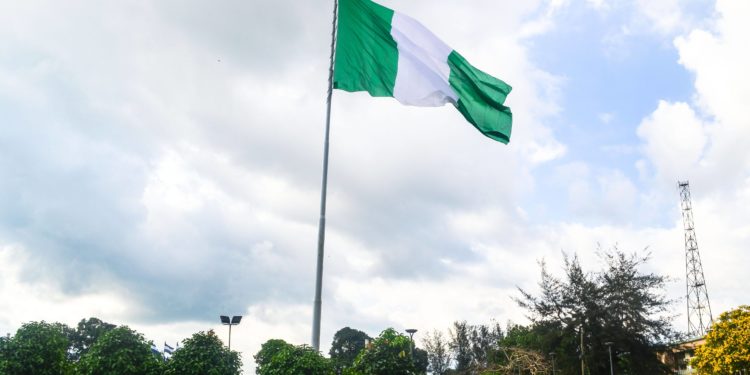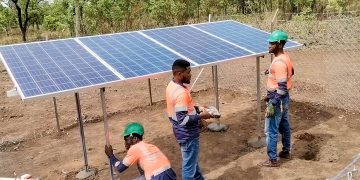There are signs that the mother of all economic crisis is coming soon
Going by the data from the National Bureau of Statistics Nigeria’s inflation rate for the month of May stands at about 17.71%, 11 months high. As alarming as this data is, most Nigerians may have an even worse experience when it comes to the prices of goods and services.
For a lot of households, consumer goods such as groceries, beverages, and provisions have more than doubled in prices since last year. Apart from households, companies operating in the country have also recorded spikes in their operating expenses and had to rely on price increases to offset the impact.
Nairametrics believes the worse is still yet to come and the signs are appearing by the day.
Just recently, diesel marketers warned that the price of diesel could rise to N1,500/litre citing the increasing global oil price, the effect of the Russian Ukraine war and a general supply gridlock across the world. Diesel prices immediately rose to N800/litre from about N650/litre in May. Diesel prices, which used to be N350/litre has more than doubled in prices in the last few weeks.
Earlier this week, the Independent Petroleum Marketers Association of Nigeria (IPMAN) announced that most of their members shut down filing stations due to what they termed operating in “hostile” environments. Petrol queues immediately surfaced across Lagos, Nigeria’s economic capital.
Electricity prices are also likely to be increased as another tariff review approaches in the next few months. Tariffs have more than doubled in the last two years for Nigerians even as power supply remains epileptic.
In another ominous sign that things are going sideways, the exchange rate crossed N600/$1 in the days leading to the multi-party primaries that saw Bola Tinubu, Atiku Abubakar and Peter Obi chosen as their respective party flagbearers. This was the first time in Nigeria’s history that the exchange rate had crossed N600/$1 widening the disparity with the official rate to about N180/$1.
The Nigerian Stock Market which is often a bellwether for the economy appears to have seen the handwriting on the wall. Stocks are currently down 5.3% month to date and on track to close the month in losses. Over N2 trillion has also been pumped into treasury bills despite the negative real return of the interest rates suggesting that investors are flying to the safety of government-backed securities.
While these signs continue to be apparent locally, events across the global economy are also pointing to a possible global economic contraction. Some analysts are already predicting a global recession that could trigger a major financial crisis, especially in Western economies. Already, the impact of rising inflation in the west has led to record increases in interest rates in the US, EU and UK forcing a market sell-off that has rocked cryptocurrencies and equities.
Recently, US President, Joe Biden accused the world’s largest shipping companies of increasing freight charges for shipping 40ft containers from about $1,300 before the pandemic to over $8,000 today. The impact is already being felt on global inflation and this is also filtering into the Nigerian economy. The rise in diesel and fuel prices is a case in point.
These signs all point to a potpourri of catalysts for a massive economic recession that could befall Nigeria in the coming weeks and months. If fuel and diesel prices spike as projected and yet remain scarce, there could be major food shortages and scarcity of essential items required by ordinary Nigerians to survive.
This will force companies to increase their prices even further stifling demand for goods and services as the purchasing power of Nigerians gets decimated. The exchange rate could fall to N700/$1 much sooner than we expect and yet remain scarce to find. As companies struggle amidst waning demand, they could be forced to cut their losses thus by downsizing, triggering mass unemployment.
The cascading effect this could have on the security situation in the country could be dire.
What should the government do to avoid this doomsday scenario? In 2020 when we faced a similar crisis brought on by the Covid-19 pandemic, the central bank of Nigeria mobilized billions of naira in intervention funds essentially backstopping the public and private sectors. The IMF also aided Nigeria with essential dollar supply via structured loans helping stem the slide of the exchange rate.
It is unlikely that this option is available to be used as the apex bank is currently stumped with so many challenges to deal with. Politicians are also busy campaigning, thus paying little to no attention to the fast degenerating economic situation. Nigeria could be headed for hard economic crisis that is riddled by the high cost of goods and services and a contracting economic growth rate if it does not take urgent steps to fix things.
A plausible option will be to borrow to meet the revenue gap. A large Eurobond offering might help soften the challenges even though this will also come at a cost especially if we do not find the revenues to pay for it in future.
Nigeria can also run cap in hand to the IMF and World Bank to raise forex, especially via fresh multilateral loans. This will come at a significant cost and conditions, one of which might be to fully deregulate the downstream sector (removing subsidy) and allowing the naira to float. As we have seen with Ghana, this option is great for markets but not a silver bullet. It comes with considerable pain except that it is one that leads to a cure of the disease.
Nigeria needs an urgent intervention if it is to avert a potential economic crisis. At this point, it doesn’t matter if that intervention is divine.








